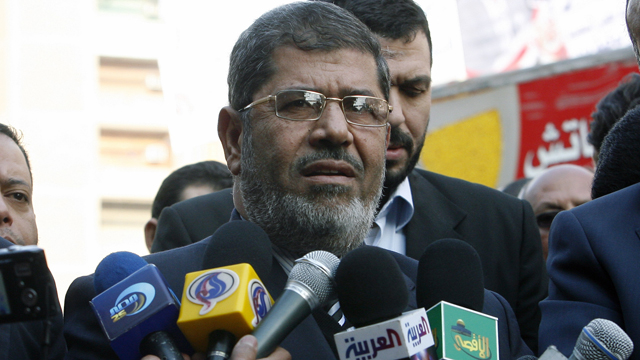Egyptian voters sent two candidates to June runoff elections in the first leg of a historical presidential contest. Mohammed Morsi, the candidate of the Muslim Brotherhood finished first with a reported 26 percent of the vote, followed by 24 percent by Ahmed Shafiq, who served as Hosni Mubarak’s Prime Minister.
Leaders of the 2011 movement that forced out Mr. Mubarak expressed frustration with the result. “The Brotherhood are despotic and fanatical and Shafiq is the choice of Mubarak. It is a very bad result. The revolution is not part of this contest,” George Ishaq, a founder of the anti-regime Kifaya Party told the Guardian. He added that “it was as if the revolution never happened.” The third place candidate Hamdin Sabbahi, a nationalist and strong opponent of the Mubark regime had the best showing of the secular anti-Mubarak vote.
Egypt watchers offered several explanations for the poor performance of more traditionally anti-regime candidates, including the resilient support and organizational strength of the Muslim Brotherhood, to vote splitting amongst candidates.
Analysts say that Mr. Shafiq’s rise was aided by sympathetic state media and voter concerns about rampant crime and instability in the country. Shafiq campaigned on bringing about a safer Egypt and struck the same note in his first post-election speech. “To the generous people of Egypt, justice is the rule of law,” he said. Shafiq is ardently opposed by Egyptians most committed to the revolutionary goals of the Tahir Square Movement. On election day he was confronted by a enraged mob at a polling place and chased away.
But, some observers fear that a close contest between an Islamist candidate and a candidate of the Mubarak era is the most potentially destabilizing of any result. The Muslim Brotherhood is known for its organizational strength and many expect the police and army, while officially neutral, will work to support Mr. Shafiq’s candidacy.






